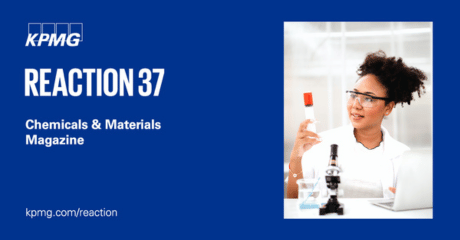Tax trends in the chemical industry: ESG, international tax, transfer pricing and tax controversy
In the chemicals sector, key tax discussions revolve around the intersection of Environmental, Social, and Governance (ESG), transfer pricing, tax controversy and international tax developments.

ESG, with its ever-evolving regulatory landscape of environmental taxes, is driving innovation and supply chain changes. It is therefore important to identify and claim incentives, grants and tax reliefs to fund innovation and finance sustainable supply chain initiatives and carbon reduction.

As chemical businesses navigate the complexities of cross-border transactions, it becomes imperative to adopt a proactive approach in addressing transfer pricing and indirect tax considerations related to these trends.

Engaging with tax authorities and other stakeholders in a transparent manner is necessary to ensuring compliance and fostering trust within the industry.
At the same time, we see a rise in (cross-border) tax controversy following scrutiny from tax authorities e.g. over transfer pricing remunerations, permanent establishments and allocation of functions and risks – often related to intellectual property.
Pillar 2 and the chemical industry
The impact of the Pillar 2 rules on chemicals companies may be significant; given the nature and size of many chemicals businesses, many companies in the sector are likely to meet the EUR 750M revenue threshold and fall within the scope. Given that chemical companies vary significantly in terms of their business and tax structures, and the level of taxation to which they are subjected - which may include incentives or similar tax benefits - the rules could have a range of different effects and result in higher (or lower) taxation relative to companies outside the sector.
We can provide comprehensive support to organizations to model Pillar 2 impacts and/or addressing data sourcing questions that come with Pillar 2 compliance. This typically involves assistance in explaining the complex rules, modeling the impact, and developing a strategy to become compliant, including gap analysis of data sourcing and management.
Although MNEs have 15 months following the first year of implementation to submit their first GloBE information return, experience already tells us that it can be challenging to get the right data out of the organization, and the impact of the rules (either in terms of additional taxation or compliance obligations) is sometimes underestimated.
Stay updated on important tax news
Subscribe now and receive our newsletters and invitations to events
Specialists over the world
As part of KPMG’s global network, Meijburg & Co leverages its extensive reach and expertise in the chemical industry beyond the Netherlands, connecting with tax specialists across key global markets including the United States, China, India, Switzerland, and Europe. This strategic positioning allows for swift adaptation to changing global circumstances, ensuring the delivery of the latest insights and solutions.
Need advice?
Our network is complemented by strong relationships with relevant sector associations, keeping our advice at the cutting edge of industry developments and regulations. Regular interactions with these associations and the Dutch Tax and Customs Administration enable us to stay ahead of industry trends and address complex tax issues, including those arising from new regulations in the chemicals sector. At Meijburg & Co, we offer top-tier tax advice and strategies to navigate these challenges effectively. For more information, please contact our specialists.




